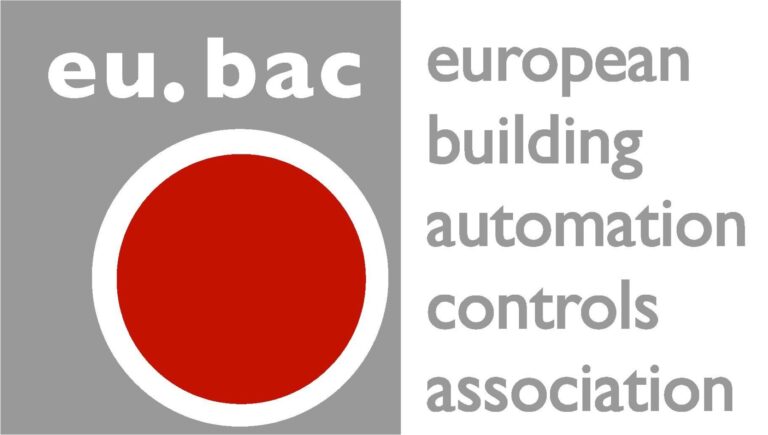eu.bac Press Release “Council General Approach on EPBD: a major step backwards”

On 26 June, the Council agreed its position on two pillars of the EU energy policy: Energy Efficiency Directive (EED) and Energy Performance of Buildings Directive (EPBD).
eu.bac, representing the European Building Automation and control industry, believes that the EPBD text approved by the EU Energy Ministers is a major step backwards, not only compared to the review proposal presented by the European Commission in November, but also, in certain aspects, compared to the current EPBD.
In December 2016, eu.bac welcomed the proposal from the Commission as a step in the right direction, “but not yet enough”, highlighting the need to further improve the text in order not to miss the huge potential to improve Technical Building Systems (TBS), particularly through the addition of Building Automation and Controls. Optimized management and control of energy in buildings is indispensable to put Europe’s building on track towards longer-term objectives for nearly zero energy, decarbonized, healthy buildings. In shorter term until 2030, important volumes of CO2 emissions could be avoided with pragmatic measures with fast pay-back and high return on investment.
In all these months from November 2016 Member States have been praising the commitments within the Paris agreement while, at the same time, working to water down the positive aspects of the Commission’s proposal that are essential for these commitments to be delivered in practice.
In particular, the Council voided Art. 8.5, thus cancelling one of the best new elements introduced by the Commission in this review. First, the Council text suggests an unjustified limitation of the TBSs that need to be assessed, with a piecemeal approach that will have a sub-optimal effect given that systems for the internal environment of a building are, by their nature, interrelated and increasingly interconnected. Second, where a TBS is installed, replaced or upgraded, the Council text would not require assessment and documentation of the overall energy performance, limiting the documentation to the altered part, meaning that the TBS performance would be disregarded, contrary to what Art. 8.1 envisaged in the current EPBD.
On Art. 14 and 15, the new text suggests the reintroduction of alternative measures relying on “adequate advice”. These provisions, already existing in the current EPBD, have proven to be ineffective and there is no reason to believe that they would be more impactful in the new EPBD.
These two issues, together with the Smartness Indicator, that is now only a voluntary tool, significantly weaken the text of the Commission’s proposal and some of its key objectives, without bringing in any positive amendment.
When it comes to Building automation and control systems, from basic thermostatic radiator valves to fully integrated building management systems, Member States decided to continue to keep it as the forgotten dimension of energy efficiency.
For the costs? BACS are low capital investment (typically 30 €/m2 in non-residential buildings and 12 €/m2 in residential buildings, 1 to 2 €/m2 for individual room temperature control by thermostatic radiator valves), with fast payback period (average 2/3 years, 1/2 years for individual room temperature control by thermostatic radiator valves).
For lack of effectiveness? BACS can deliver huge energy savings (yearly, around 632 TWh / 54 Mtoe, 58€ billion), dramatically reducing CO2 (yearly, from 111 to 134 million tons CO2 emissions).
For lack of impact on the market? BACS boost digitalization and economic recovery (an incentivizing policy would create 200,000 and 300,000 direct jobs and 3.7 million indirect jobs by 2030), driving manufacturers’ investments into R&D, innovation and manufacturing, in particular on smart digital technologies.
Despite all of these benefits that are demonstrably achievable in the short term, Member States decided not to take any action, but simply to look the other way.
eu.bac urges the Estonian Presidency to work with Member States in order to improve the text during the negotiations with the other institutions starting in Autumn and to show that the Paris Agreement is the start of real action, not just grand words that will be ignored.
With several of the tabled amendments in the European Parliament going in the right direction, eu.bac is looking forward to work with MEPs to help businesses and citizens make major energy savings, improve their health and comfort while, at the same time, tackling energy poverty and driving digitalization, jobs and growth.
